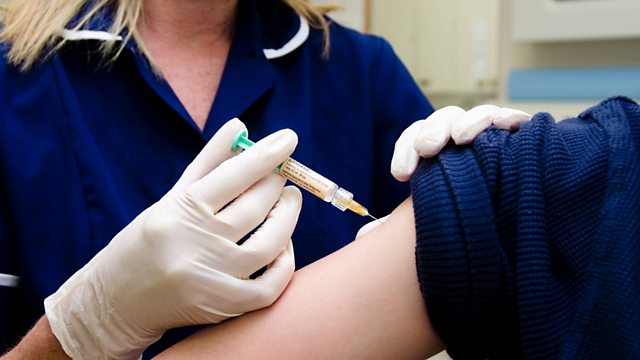Cervical cancer rates massively reduced by vaccine, UK report
More than 100 countries now use the human papillomavirus vaccine and 90% of cervical cancer deaths worldwide now occur in poorer countries where there's little screening.
New research in England has shown that cervical cancer rates are 87% lower in women who were offered vaccination against human papillomavirus (HPV) when they were between the ages of 12-13 than in previous generations. This is the first direct evidence of prevention of cervical cancer using the vaccine, Cervarix. More than a-hundred countries now use the human papillomavirus vaccine. Ninety percent of cervical cancer deaths occur in poorer countries, where there's little screening.
Kate Sanger is the head of policy and communications at Jo's Cervical Cancer Trust, a UK based cervical cancer charity:
“It’s incredibly positive to see really solid evidence of the success of the HPV Vaccine in reducing cervical cancer cases and that’s going to lead to lives saved in the future. In the UK it’s been offered since 2008. That means that girls who were offered it first are now about 25, 26 and are coming into the cervical screening programme for the first time.”
“The optimal age [to receive the vaccine] is around 11 or 12 years old and that’s when the school-based programme vaccinates both girls - and boys now - because it’s most likely there won’t have been exposed to the HPV, that’s when the body is most receptive to the vaccine and make it as effective as possible.”
(Pic: Teenage girl is vaccinated against diseases caused by the human papillomavirus (HPV) such as cervical cancer; Credit: Science Photo Library)
Duration:
This clip is from
More clips from Newsday
-
![]()
'I immediately called my mother, I told her that I was alive'
Duration: 02:21
-
![]()
'People on both sides have suffered enough'
Duration: 04:44






